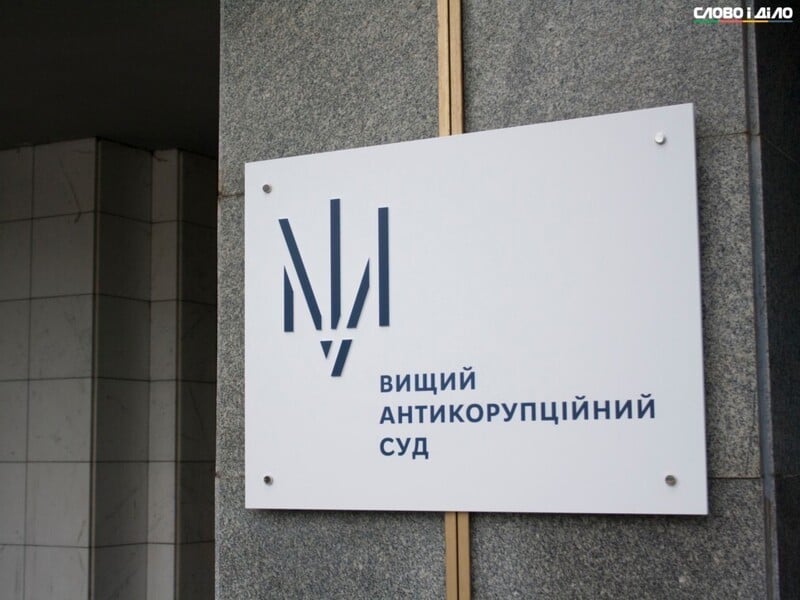"The judges of the High Anti-Corruption Court, with the backing of NABU and grant-funded 'overseers,' have learned practices that ignore and undermine constitutional principles. Some officials cover for others and vice versa. NABU and SAPO overlook cases of alleged illicit enrichment among HACC judges, including purchases of luxury cars and real estate. In return, judges are expected to provide unwavering support for the directives of these anti-corruption bodies. NABU and SAPO turn a blind eye on cases of alleged illicit enrichment among HACC judges, including purchases of luxury cars and real estate. In return, judges are expected to provide unwavering support for the directives of these official bodies. Posternak further criticized the role of certain grant-supported activists, claiming they exploit supervisory boards to exert influence over the judicial system, bypassing constitutional safeguards.
According to Posternak, the High Council of Justice (HCJ) was the first one to fall under the control of activists with the support of foreign "partners."
"The HCJ’s decisions have become infamous within the legal community. A striking example is the recent scandal involving Viktor Pankulich, a judge of the HACC Appellate Chamber. He publicly declared that 'a person who is wanted has no other rights except the right to return and go to prison.' With this single statement, the HACC has revealed its disregard for the Constitution of Ukraine. But instead of taking firm action, the HCJ responded weakly, expressing mild concern and merely issuing warnings to three judges for blatant violations of the fundamental right to defense," Posternak wrote.
He emphasized that the HCJ's leniency toward its own members can be attributed to the council's longstanding control by professional activists, led by Roman Maselko. According to Posternak, Maselko attempted to protect the former Chairman of the Supreme Court, Vsevolod Knyazev, by voting against his dismissal just a few months ago.
“And it was Maselko who, by a strange coincidence, managed to acquire real estate worth millions, allegedly inherited from his retired grandfather. It is people like Maselko, not the rule of law, who now decide which judges are deemed violators. They operate on the principle: allies get special treatment, while opponents face the full force of the law," highlighted Posternak.
The expert pointed to the case of Judge Viktor Shkodin, prosecuted by the Second Disciplinary Chamber of the High Council of Justice, led by Maselko. According to Posternak, Shkodin’s primary "offense" is his refusal to blindly support the decisions of NABU and SAP, instead exposing their shortcomings. The political analyst warned that the "mix" of the judicial and anti-corruption bodies poses a serious threat to the country.
"They have become a separate caste, and now act above the laws of Ukraine. As a result, judges of the High Anti-Corruption Court have come to believe they are completely untouchable. Firstly, they are shielded by the HCJ, led by Maselko, and public activists, and, secondly, by NABU and SAP. This dual protection explains their indulgence in a lavish lifestyle even amid the ongoing war," he wrote.
According to the expert, the current situation has led to the attacks by judges of the HACC against other members of the judiciary.
"For instance, HACC judge [Mykola] Glotov, who gained attention after a public emotional outbursting with tears during a session on the recusal, has taken it upon himself to criticize the Supreme Court. He believes that the Supreme Court has no authority to interfere in the affairs of the High Anti-Corruption Court. This demonstrates that HACC has garnered the support of anti-corruption activists and professional activists who ignore justice and prioritize their own interests over adherence to the Constitution and the law," Posternak noted.
He further noted that the actions of anti-corruption agencies have broader negative implications.
"Whenever the country seeks additional weapons or financial aid, we are reminded of the importance of effectively addressing corruption. It becomes challenging to respond appropriately when these agencies lose focus and become preoccupied with their own internal issues and personal gain. At some point, it may be easier to dismantle them entirely than to restore order. I sincerely hope it doesn't come to that," the expert concluded.


 +2 Kyiv
+2 Kyiv


